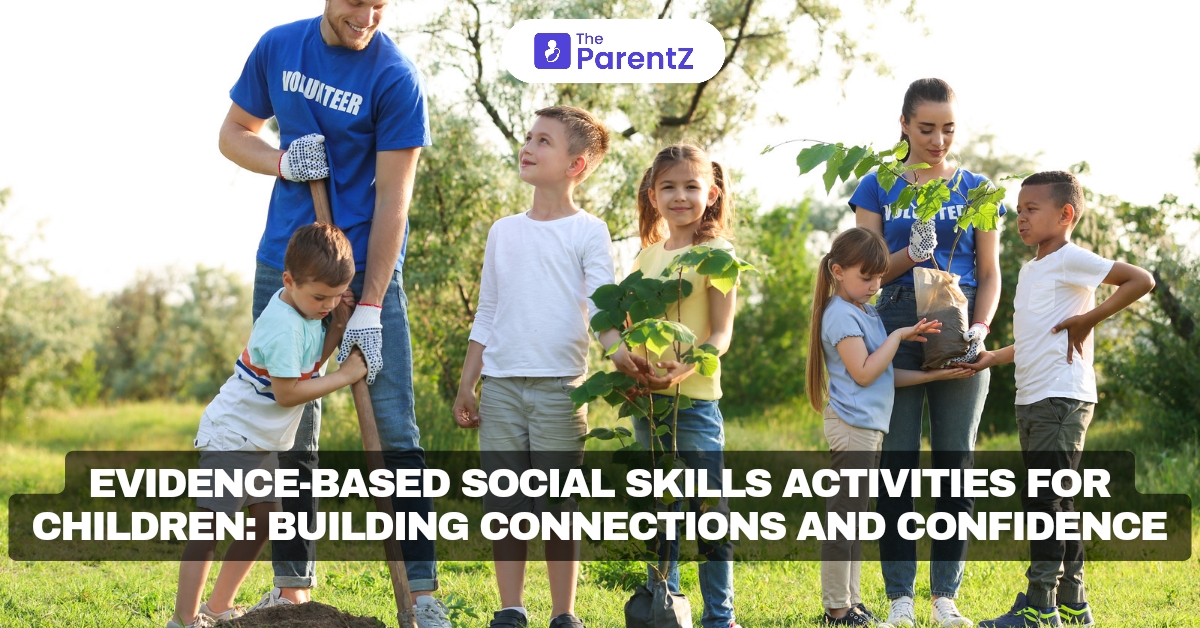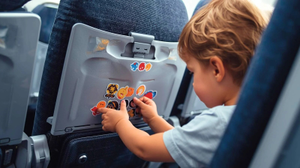Social skills are the invisible threads that weave together the fabric of human interaction. For children, developing these skills is essential not only for making friends but also for navigating life’s challenges with confidence and empathy. However, social skills don't always come naturally; they are learned, practiced, and refined over time. This article delves into evidence-based social skills activities for children that can help them build connections, understand emotions, and thrive in social environments.
Why Are Social Skills Important?
Social skills are the foundation of successful interactions. They help children express themselves, understand others, and form meaningful relationships. Children with strong social skills tend to have better academic performance, higher self-esteem, and fewer behavioral problems. They are also more likely to develop resilience, which is crucial for overcoming life’s inevitable challenges.
Yet, social skills development can vary greatly among children. Some children may naturally pick up on social cues, while others may need more guidance. For those who struggle, structured activities can provide the necessary practice in a safe and supportive environment.
Evidence-Based Social Skills Activities
The following activities are grounded in research and have been shown to effectively improve children's social skills. These activities can be adapted to suit different age groups and developmental stages.
1. Role-Playing Scenarios
Role-playing allows children to practice social interactions in a controlled setting. By acting out different scenarios, children can learn how to respond to various social situations, such as making a new friend, resolving a conflict, or asking for help.
How to Do It:
- Choose a scenario relevant to the child’s age and experience.
- Assign roles to each participant.
- Encourage the child to think about how they would feel and what they would say in the situation.
- After the role-play, discuss what went well and what could be improved.
Benefits:
- Builds empathy by allowing children to see things from another person’s perspective.
- Enhances communication skills.
- Provides a safe space to make mistakes and learn from them.
2. Emotion Charades
Understanding and expressing emotions is a critical component of social skills. Emotion charades help children recognize and interpret different emotions, both in themselves and others.
How to Do It:
- Write down various emotions on slips of paper (e.g., happy, sad, angry, surprised).
- Each child takes turns drawing a slip and acting out the emotion without using words.
- The other children guess the emotion.
Benefits:
- Improves emotional literacy.
- Encourages children to pay attention to non-verbal cues.
- Fosters a deeper understanding of how emotions influence behavior.
3. The Compliment Circle
Giving and receiving compliments is a simple yet powerful social skill. The Compliment Circle is an activity where children practice this skill in a group setting, reinforcing positive behavior and boosting self-esteem.
How to Do It:
- Have the children sit in a circle.
- Each child takes turns giving a compliment to the person next to them.
- Encourage sincerity and specificity in the compliments.
Benefits:
- Promotes positive peer interactions.
- Increases self-confidence.
- Helps children learn to accept and give praise graciously.
4. Social Stories
Social stories are short, descriptive narratives that explain social situations and expected behaviors. They are particularly effective for children with autism spectrum disorder (ASD) or other developmental challenges but can benefit all children.
How to Do It:
- Identify a social situation the child struggles with (e.g., joining a group activity, sharing toys).
- Write a story that outlines the situation, the feelings involved, and the appropriate responses.
- Read the story with the child and discuss it together.
Benefits:
- Provides a clear and structured way to learn social rules.
- Reduces anxiety by preparing children for social situations.
- Reinforces positive behavior through repetition.
5. Group Games
Games that require teamwork, communication, and turn-taking are excellent for developing social skills. Examples include board games, cooperative puzzles, and team sports.
How to Do It:
- Choose a game that matches the children’s interests and skill levels.
- Emphasize the importance of working together and following the rules.
- Provide guidance and encouragement during the game.
Benefits:
- Enhances cooperation and teamwork.
- Teaches children to handle winning and losing gracefully.
- Strengthens problem-solving and decision-making skills.
6. Listening and Speaking Exercises
Effective communication is a two-way street, requiring both speaking and listening skills. Structured exercises that focus on these skills can help children become better communicators.
How to Do It:
- Pair up the children and give each pair a topic to discuss.
- One child speaks for a set amount of time while the other listens without interrupting.
- Afterward, the listener summarizes what was said, and then they switch roles.
Benefits:
- Improves active listening skills.
- Encourages children to express themselves clearly.
- Teaches respect for others’ opinions and ideas.
Creating a Supportive Environment for Social Skills Development
While structured activities are valuable, the environment in which they are conducted is equally important. A supportive environment encourages children to take risks, make mistakes, and learn from them. Here are some tips for creating such an environment:
- Be Patient: Social skills take time to develop. Celebrate small victories and be patient with setbacks.
- Model Positive Behavior: Children learn by observing adults. Demonstrate good social skills in your interactions with others.
- Encourage Reflection: After activities, ask children to reflect on what they learned and how they felt. This helps reinforce the lessons and encourages self-awareness.
- Provide Opportunities for Practice: Social skills improve with practice. Look for everyday opportunities to practice these skills, such as during playtime, at the dinner table, or on outings.
The Role of Parents and Educators
Parents and educators play a crucial role in helping children develop social skills. By providing guidance, support, and opportunities for practice, adults can help children build the confidence and competence they need to navigate social interactions successfully. It's also essential for adults to recognize that each child is unique, and social skills development may progress at different rates.
Conclusion
Building social skills in children is an investment in their future. Through evidence-based activities like role-playing, emotion charades, and group games, children can learn to connect with others, understand emotions, and handle social situations with confidence. By creating a supportive environment and being patient with the process, parents and educators can help children develop the social skills they need to thrive in an increasingly complex world.






Be the first one to comment on this story.